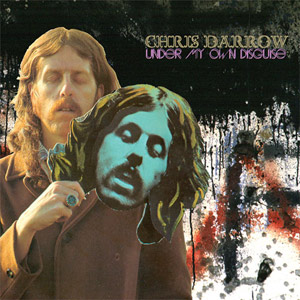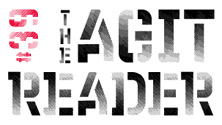
Chris Darrow/Under My Disguise
Everloving
Chris Darrow is like the Kevin Bacon of the Southern California psych cum country cum folk scene. He seemingly rubbed elbows with anyone to have been or become part of the nexus of that particular locational hybrid. He started with the Dry City Scat Band, a bluegrass combo also featuring David Lindley and whose Richard Greene introduced Darrow to members of the Byrds. Lindley and Darrow went on to to form Kaleidoscope (reportedly Jimmy Page’s “favorite band of all time”), who wound up backing Leonard Cohen on “So Long Marianne” and “Teachers” on Songs of Leonard Cohen.
After Kaleidoscope’s dissolution, Darrow went on to replace Jackson Browne in the Nitty Gritty Dirt Band. With the Dirt Band’s Jeff Hanna, he formed the Corvettes, who got a gig backing Linda Ronstadt. When Hanna left the Corvettes, he was replaced by future Eagle Bernie Leadon. Through an association made while he was with the Corvettes, Darrow ended up fiddling on James Taylor’s Sweet Baby James. And he’s also collaborated with Kim Fowley and the Surf Punks’ Dennis Dragon.
Obviously, Darrow, who still lives in Claremont, California, where he grew up, has got talent, or at least uncanny networking ability. But does that translate to a solo catalog of overlooked gems? That’s what the Everloving label is thinking in reissuing his first two records, a self-titled album from 1973 and 1974’s Under My Own Disguise, as a deluxe set available as two-CD and two-LP packages.
Listening over this material, though, it’s doubtful anyone is going to be blown away. Darrow has got chops as a player, but as a singer and songwriter he’s just a tad above average. “Take Good Care of Yourself,” from Chris Darrow, is interesting as one of the earliest hybrids of country and reggae. And “We Don’t Talk of Lovin’ Anymore,” from the same record, is a mournful tune in the vein of Townes Van Zandt, and Darrow’s mandolin work here is impeccable. “Whipping Boy,” covered not too long ago by Ben Harper, whose grandparents ran the store where Darrow bought his first guitar, also stands out, wrought with the resonance of a blues standard. “That’s What It’s Like To Be Alone” shows lysergic tints from the previous decade, its harpsichord-laced instrumentation seemingly of the times.
Under My Disguise, recorded in Europe, is less playful, instead sticking to the straight-and-narrow. It’s here that Darrow’s limitations are more apparent. Not that the record is without merit, it’s just that these songs never escape their chosen paradigm. Darrow may have been a great session man, and that shows here, as these songs never amount to much more than the sum of their parts.
Stephen Slaybaugh
PAST PERFECTS
Various Artists, Downriver Revival
Isaac Hayes, Black Moses and Juicy Fruit (Disco Freak)
Death, ...For the Whole World to See
The Notorious B.I.G. Ready to Die
Zero Boys, Vicious Circle and History Of
Volcano Suns, The Bright Orange Years and All Night Lotus Party
Miles Davis, Kind of Blue
Swervedriver, Raise and Mezcal Head
Flipper, Generic, Gone Fishin', Public Flipper Limited, and Sex Bomb Baby!
Pavement, Brighten the Corners: Nicene Creed Edition
The Grifters, Ain't My Lookout
Blue Ash, No More, No Less
The Jesus and Mary Chain, The Power of Negative Thinking
New Order, The Collector's Editions
